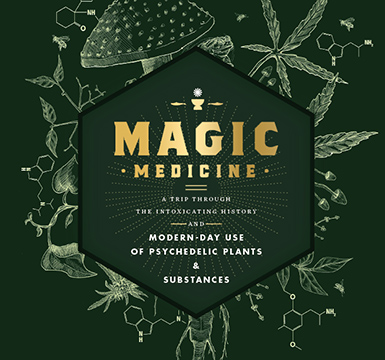Posts tagged "mental health"
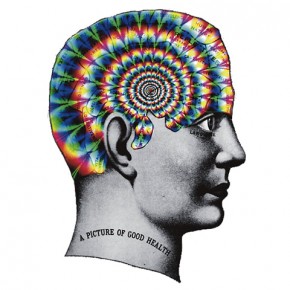
Psychedelics linked to reductions in suicide and distress
People who have used psychedelic drugs are less likely to suffer from depression, psychological distress, or suicidal thinking, according to a new study published in the Journal of Psychopharmacology. The research was led by Peter Hendricks, a professor of clinical psychology at the University of Alabama at Birmingham, using data from the National Survey on Drug Use and Health. Survey responses from over 190,000 adults were analyzed and the respondents were divided into two groups — lifetime psychedelic users and non-users. Lifetime users were defined as those who had ever, even once, tried DMT, ayahuasca, mescaline, psilocybin mushrooms, or LSD. 13.6%...
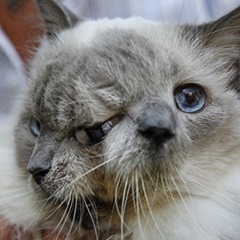
One Brain, Many Selves Demons, Tulpas, and Neurons Gone Wild
This is a guest post by Kevin Simler, originally published on his website, Melting Asphalt. If you missed his previous piece, Accepting Deviant Minds, don’t worry — this essay stands on its own. Prepare to rethink your whole concept of “self” — just how many selves can take root in one brain? To reject gods and spirits is easy: just bully them away in the name of science. But to accept them, or at least our experiences of thuem, and yet give them a scientific explanation: there’s a task worthy of our art. It demands that we look them in the eye and take them seriously,...

Accepting Deviant Minds Why 'Hallucinations' Are as Real as the Self
This week’s guest post is by Kevin Simler. Kevin is a philosopher and blogger who believes in (pan)critical rationalism, keeping his identity small, and writing as an aid to thinking. This post was first published on his website, Melting Asphalt — one of my favorite sources for fresh critical perspectives on the mind, society, and everything in between. At a sleepover when I was 12, a friend told me that he could control his dreams. It didn’t happen every night, he said, but every so often he’d become aware of being in the middle of a dream. Usually at that point he’d...
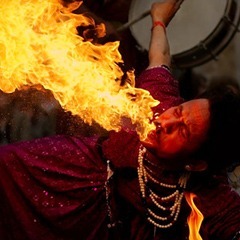
8 Tips for Using Recreational Drugs Responsibly
This week’s guest post is by Aaron Moritz. Aaron is an independent writer, researcher, video editor, and co-host of the Srsly Wrong podcast. Find more of his articles at his blog and check out the Srsly Wrong website. The ‘War on Drugs’ and ‘Just Say No!’ campaigns have been colossal failures, and one of the main reasons — a reason people don’t like to talk about — is that taking drugs is fun, and not everybody who does it has a problem. We don’t like to admit that, but it’s true. I am not advocating that anybody use recreational drugs....
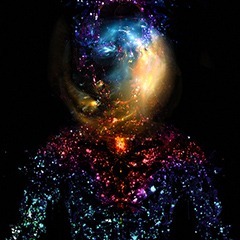
Moving Into the Sacred World of DMT, by Nick Sand
Nick Sand is one of the most prolific and well-known underground chemists in history. From 1966 to 1996, he produced huge amounts of LSD, as well as MDMA, synthetic mescaline, DMT, and other psychedelics that were distributed around the globe. Along with Tim Scully, Nick Sand was responsible for producing over 3 million hits of Orange Sunshine, a brand of LSD that was renowned for its quality and purity in the Sixties. Sand has a particular fondness for DMT. In fact, it was a DMT vision quest in the 60s that convinced Sand to dedicate his life to...
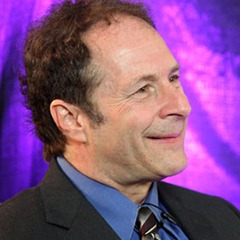
“Ask Me Anything” Reddit Interview with Rick Doblin & MAPS
Yesterday, Rick Doblin and ten other MAPS staff members engaged in an online “Ask Me Anything” session on Reddit. The turnout was phenomenal. Questions ran the gamut from personal (“Have you ever tried psychedelics?”) to political (“Will the legalization of psychedelics will come next after marijuana?”) and much more. Several posters asked about minimizing the risk of MDMA toxicity, while others were curious about treatments for cluster headaches, depression, autism, and other conditions. A couple people even asked if MAPS accepts Bitcoin (as of yesterday, they do). As you might expect, the answers from MAPS staff were incredibly...
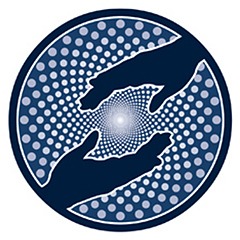
Help Heal Trauma Survivors by Supporting MDMA Research
MAPS, the Multidisciplinary Association for Psychedelic Studies, has been an instrumental force in psychedelic research and advocacy since its formation in 1986. In my opinion, this non-profit organization has done more to establish psychedelics as legitimate medicines than anyone else in the world. Their biggest project is proving the safety and effectiveness of MDMA-assisted therapy as a treatment for post-traumatic stress disorder (PTSD). They have performed a number of studies around the world indicating its effectiveness — even with the one-third of PTSD patients who do not respond adequately to other treatments. As you can imagine, MAPS does...
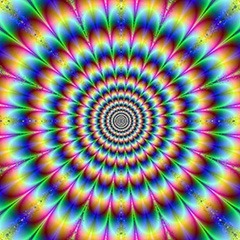
Psychedelics Linked to Lower Risk of Mental Illness
It seems that all the best news about psychedelics lately is coming from scientists. You know, those people whose job it is to discover the truth even if it flies in the face of cultural and legal prejudices? Turns out the truth about psychedelics is not so convenient for those who insist on banning them. In a new study, a Norwegian neuroscience team has found that use of psychedelic drugs is not associated with increased risk of mental health problems. In fact, psychedelic users were shown to have a lower risk of mental health issues, including psychosis, anxiety, mood disorders,...
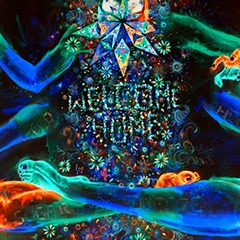
A Treatise on Psychedelics Part 2/3: The Mystical Experience
This guest post by Martijn Schirp continues from Part 1, discussing the Interdisciplinary Conference on Psychedelic Research that he attended. It was originally published on higHExistence.com. If we recognize the plant as an autonomous power which enters in order to put roots and flowers in us, then we distance ourselves by several degrees from the skewed perspective which imagines that spirit (Geist) is the monopoly of human beings and doesn’t exist outside of them. A new world-picture has to follow the planetary leveling; that is the task which the next century will take up. –Ernst Jünger, The Plant as Autonomous Power. Where are the...
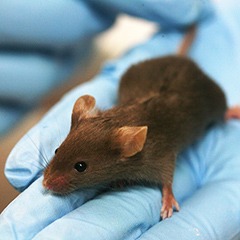
Low dose psychedelics increase neurogenesis, help mice unlearn fear
A new study of mice published in Experimental Brain Research shows that low doses (but not high doses) of psychedelics increase the rate of neuron creation in the hippocampus, and help the mice to rapidly unlearn conditioned fear responses. From the abstract (paragraph breaks added for readability): Drugs that modulate serotonin (5-HT) synaptic concentrations impact neurogenesis and hippocampal (HPC)-dependent learning. The primary objective is to determine the extent to which psilocybin (PSOP) modulates neurogenesis and thereby affects acquisition and extinction of HPC-dependent trace fear conditioning. PSOP, the 5-HT2A agonist 25I-NBMeO and the 5-HT2A/Cantagonist ketanserin were administered via an acute intraperitoneal injection...

Tripping as a Tool for Self-Realization
Psychedelics are the chameleons of the drug world — amenable to a variety of uses, dependent on the user’s attitude. The importance of set and setting cannot be overstated. If you use them as intoxicants, you will become intoxicated. If you want to see pretty shapes and colors and “trip out” to music, then they will act as sensory enhancers. If you just want a new mode of consciousness that leads you to experience life in a novel way, they will satisfy that urge. There’s nothing wrong with these approaches. “Getting fucked up” can be a completely legitimate...
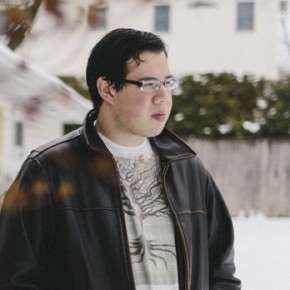
Ketamine shows promise in treating “Fear of Harm”
There has been a huge resurgence of research on psychedelic and dissociative drugs recently. This is very promising because for 40 years, the study of these very promising medical compounds was shelved in the name of prohibition. Finally, after decades of hiatus, we are able to shed light on some of these compounds in controlled clinical settings. The studies may be small and few in number right now, but their positive results should help open the door to larger and ever more diverse studies. If early studies are any indication, the medical potential of psychedelics is absolutely vast....

